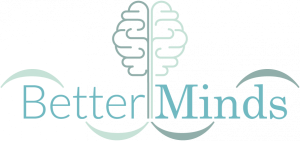Lapse
Lapse is a normal part of recovery, with few who go through the recovery process having a lapse-free journey. Normalising lapse whilst upskilling people to reduce the risk can minimise this frequency of lapse episodes. Too often strategies to manage lapse are reserved for the latter stages of change-work and can be delivered in a way that those in recovery learn to fear it. By normalising and equipping people to understand lapse the recovery journey can be much smoother, faster and result in long-term recovery. If your team work with service users with substance misuse issues, gambling issues or destructive behaviour issues such as self harming, the lapse course will equip them to offer interventions to make lapse less likely and to reduce its frequency, duration and intensity should it occur.
An Introduction to the Betterminds' Lapse Course
The Reducing and managing Lapse Course is designed to reduce the fear of lapse. The course will equip staff and service users to effectively understand how it can occur and what they can do as they move forwards in the recovery journey to make lapse less and less likely.
The Betterminds Lapse course equips you and your team to accept lapse as part of the recovery journey for many and so to adequately prepare for service users for the likelihood of lapse. Service users will be able to accept any lapse events as learning episodes. This approach will help service users to take non-judgemental approaches to the learning process and quickly continue their progression through their recovery
The course will offer over 50 different tools and techniques to make lapse less and less likely and incorporates the range of different things you can do to make triggers less likely and less destructive. There will also be a series of different tools to manage a craving episode and the strategies to manage an urge, alongside more structural approaches to prevent the mindset of lapse evolving.
How Long is the Lapse Course?
The Betterminds Lapse Course usually runs for a single day, however, this may be extended depending on the requirements of your organisation.
What Will My Team Gain From The Betterminds' Lapse Course
This course is designed to help your teams understand the causes of lapse, the process of lapse and explain the range of interventions that you can deploy and why they are specific to that point in the lapse process.
By having this understanding learners will be able to cascade greater understanding to their service users and challenge judgementalism. This will make them more accepting of their limitations and equally aware of the range of tools that they can use instead of catastrophising or getting emotionally consumed.
By having this skill-set, service users will become more self-reliant, confident, capable and able to reach their potential moving forwards.
The Betterminds Lapse Course will equip you and your team with the knowledge required to be able to recognise and reduce lapse with the people you work with, including employees, service users and clients.
Where Will The Betterminds' Lapse Course Be Useful
This course will be useful to any organisation working where lapse will have an impact including substance misuse, eating disorders, gambling or any addictive behaviour setting.
This training will also be useful for colleagues who work in social care, social housing, mental health services, criminal justice settings and prison services.
What Are The Primary Course Objectives
- Understand the difference between lapse and relapse
- Understand the differences between triggers, cravings and urges
- Have tools to address triggers, cravings and urges
- Have a minimum of 50 tools to manage lapse more effectively
- Understand the circumstances that allows a lapse to evolve & interventions to reduce this risk
What Else Will Our Team Learn
- Able to identify and challenge the destructive language that can create a lapse
- Understand and challenge destructive emotions that stem from lapse
- Able to use lapse as a recovery tool
- Create a culture of lapse acceptance in the work environment
- Feel more confident as a practitioner
